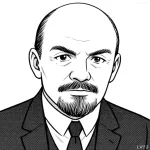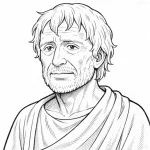“He who does not prevent a crime when he can, encourages it.”

- c. 4 BC – AD 65
- Roman
- Philosopher, Statesman, Dramatist, Stoic Thinker, Advisor to Emperor Nero
table of contents
Quote
“He who does not prevent a crime when he can, encourages it.”
Explanation
Seneca emphasizes moral responsibility through inaction: failing to stop wrongdoing when one has the power to do so is itself a form of silent complicity. In the Stoic tradition, virtue is not passive; it requires courageous action in the face of injustice. To ignore a crime is, in effect, to lend it approval, because silence and inaction create the conditions for evil to thrive.
This principle held special weight in Seneca’s time, when corruption, political violence, and tyranny were common. Serving under Nero, Seneca knew the dangers of both speaking out and remaining silent. This quote reflects his belief that ethics demand engagement, not retreat. The true philosopher must not only live justly but also oppose injustice, even at personal risk.
In modern terms, this idea applies to bystander behavior, institutional complicity, and civic duty. Whether witnessing harassment, fraud, or abuse of power, choosing not to intervene—when one reasonably can—makes one morally accountable. Seneca’s words serve as a call to conscience: justice is not just about what we do, but also about what we refuse to ignore.
Would you like to share your impressions or related stories about this quote in the comments section?



